The pros and cons of digital shower systems – is it still too early to buy one?
We asked a top industry expert to give us the positives and downsides of digital showers, and whether now is the time to buy one


Design expertise in your inbox – from inspiring decorating ideas and beautiful celebrity homes to practical gardening advice and shopping round-ups.
You are now subscribed
Your newsletter sign-up was successful
Want to add more newsletters?

Twice a week
Homes&Gardens
The ultimate interior design resource from the world's leading experts - discover inspiring decorating ideas, color scheming know-how, garden inspiration and shopping expertise.

Once a week
In The Loop from Next In Design
Members of the Next in Design Circle will receive In the Loop, our weekly email filled with trade news, names to know and spotlight moments. Together we’re building a brighter design future.

Twice a week
Cucina
Whether you’re passionate about hosting exquisite dinners, experimenting with culinary trends, or perfecting your kitchen's design with timeless elegance and innovative functionality, this newsletter is here to inspire
It seems that everything has gone digital these days, from banking and shopping to radio to magazines... and now we have the digital shower. But can what is essentially a spray of water be improved with digital technology? Well, in short, yes.
Unlike a standard mixer shower, which uses a mechanical lever or dial to control elements such as water temperature, flow and which shower head is in operation, a digital shower uses an electrically powered system. This gives us more precise control over the water flow and temperature.
A digital shower should not be confused with an electric shower. In an electric shower, the electricity is used to power a heating element, rather than to control the water flow.
Going digital in your shower room or wet room could reap several benefits. It can make showering more efficient, as well as safer. Never again will you have to live in fear of stepping into an icy blast of water, or worry about the cost of your teen's half-hour showering sessions.
That said, while digital showers are improving, there are a few roadblocks worth considering before you buy, too. So we spoke to Natalie Bird, marketing manager at shower and bathroom brand Roca, about the pros and cons of digital showers so that you can decide if you're ready to invest in one.

Natalie’s immersion in the world of bathrooms began at Graham’s Plumbers Merchants, which supplies plumbing, heating, bathroom and renewable solutions to the trade. In 2021 she joined the team at Roca UK as its Brand Marketing Manager. To date, she has been instrumental in launching key sanitaryware, brassware, furniture and accessory collections that have further established the Spanish brand as a ‘must-have’ in the UK market. Natalie’s knowledge and passion for bathrooms are coupled with a determination that everyone should have their dream bathroom – in fact, she’s often to be found planning hers!
Digital showers – the pros
There's a lot to love about digital showers. Here are five key upsides to moving away from a standard mixer shower set-up.
1. You get the perfect shower, every time
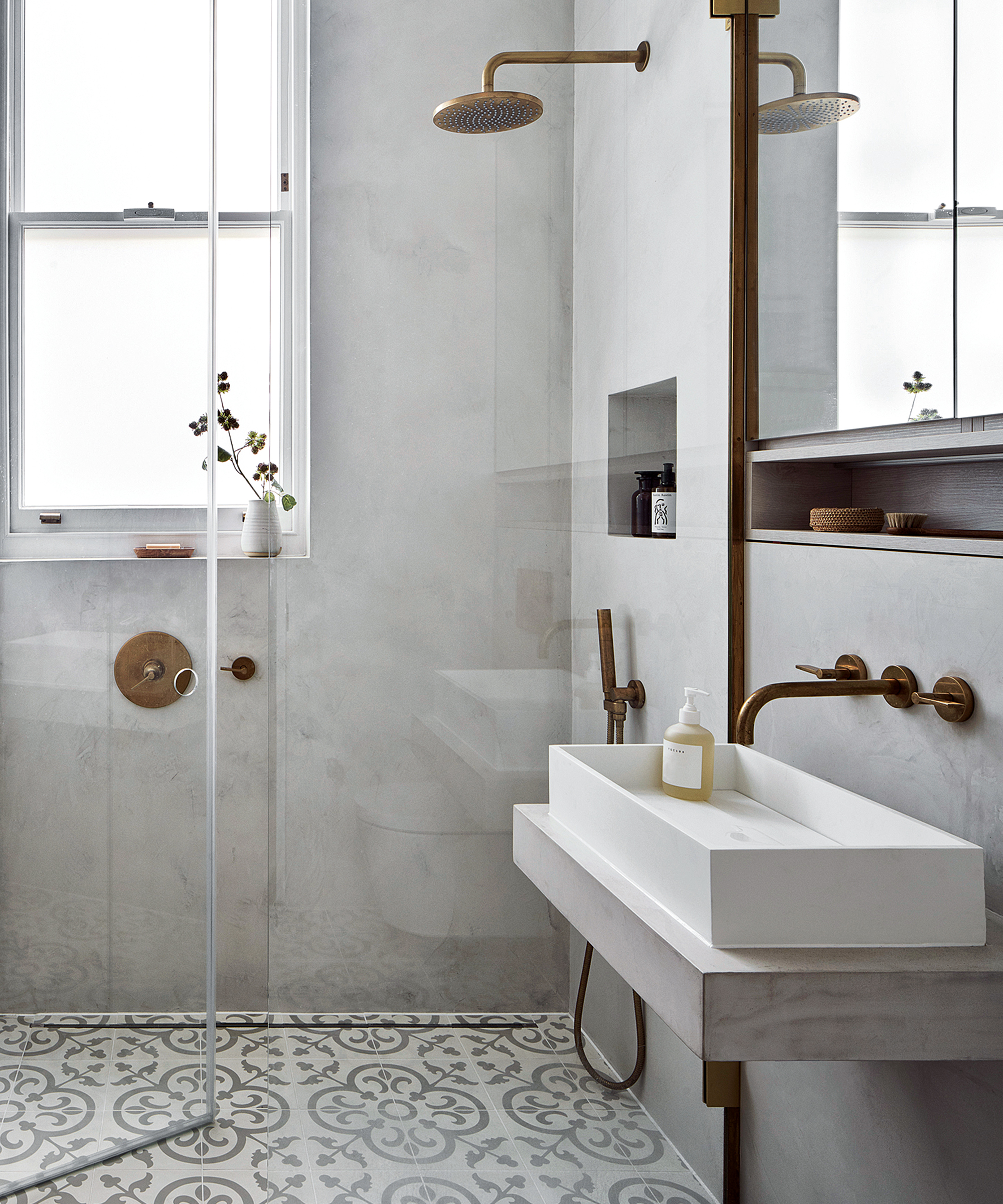
'A digital shower takes the waiting and the guesswork out of a morning shower,' says Natalie. 'One of the main features is that you can pre-set and save your ideal temperature, flow and duration.'
Design expertise in your inbox – from inspiring decorating ideas and beautiful celebrity homes to practical gardening advice and shopping round-ups.
'Simply choose your setting and the shower will let you know when it’s ready, all you have to do is step in. What’s more, you can set up multiple profiles for other people in your house, too, so everyone has their perfect shower every time.' This makes a digital shower a great choice for a family bathroom.
When it comes to the strength of your digital shower, you will usually be able to choose between a powerful jet – perfect for rinsing away shampoo, relieving tired muscles or just waking you up after a late night – or larger, softer droplets for a more luxurious, relaxing shower experience. You may also get the option to use both in combination.
2. Digital showers save water
If you're looking for sustainable bathroom ideas, a digital shower is a great water saver. 'At a time when we’re all conscious of household expenses, as well as the need to save resources, a digital shower can help,' Natalie explains.
'With a digital shower, you can pause the flow of water instantly while you shampoo your hair. Then, when you’re ready to rinse, the water flow and temperature will be exactly the same, so there’s no need to adjust or waste any water. You can also pre-program the duration of the shower, which can be handy if you have teenagers in the house who are prone to very long showers!'
3. They're safer
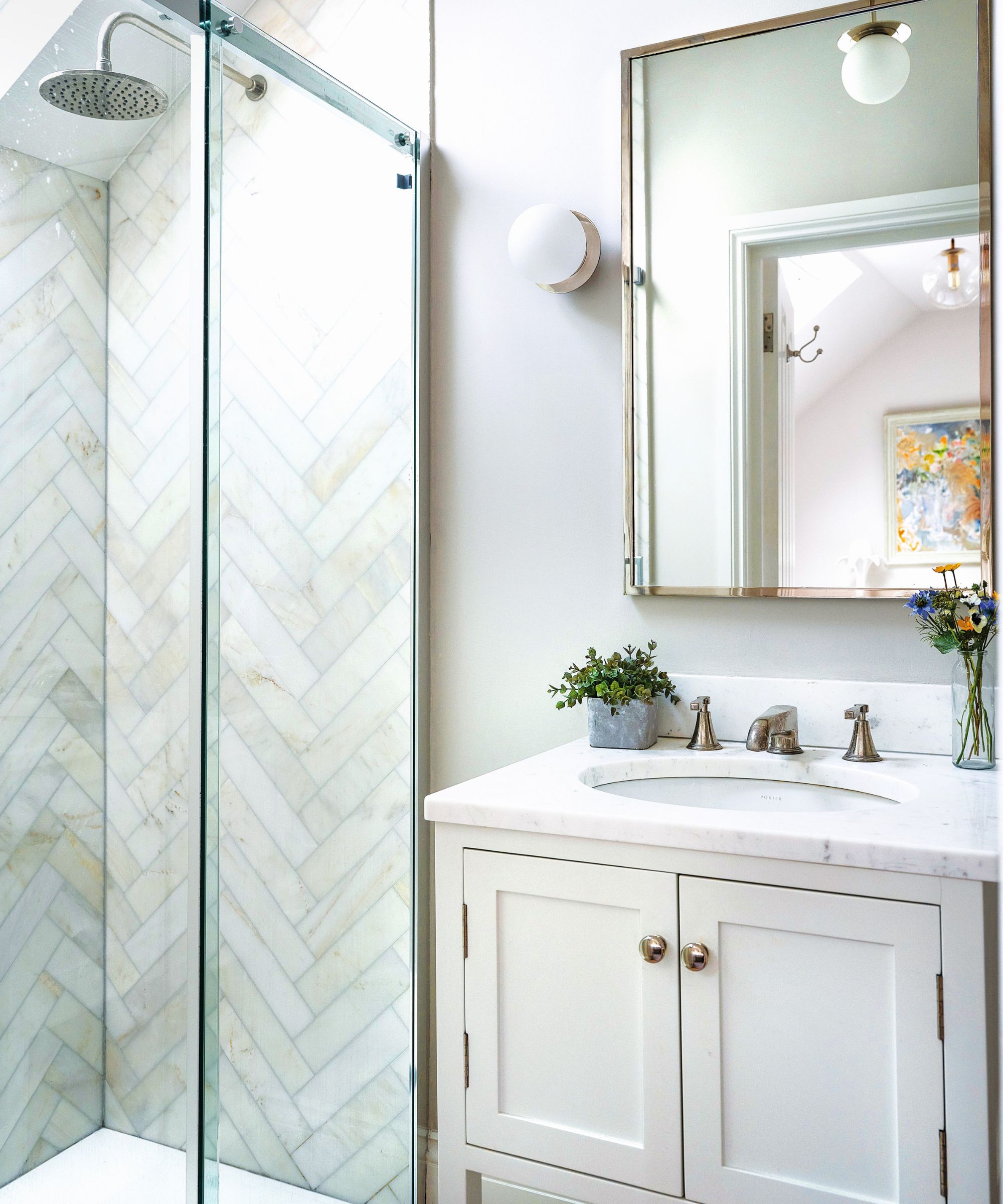
Most digital showers will have some sort of safety mode. The child safety mode on Roca’s Smart Shower, for example, allows children to turn the shower off but not on, so there's no danger of them flooding the bathroom, soaking family pets or simply wasting water.
Digital showers also carefully monitor the water temperature to eliminate the risk of scalding – another reason why they could be a good fit for a kids' bathroom.
4. Integrated cleaning functions
Cleaning a showerhead and keeping it free of limescale is a constant battle, so anything that can help, we welcome it. 'Digital showers come with integrated cleaning programs that do just that,' says Natalie Bird.
'For example, the Roca Smart Shower has a program that intermittently releases high-pressure water from all outlets to remove limescale and impurities from pipes and jets. And for a thorough cleaning, a six-minute program releases water at 72ºC to purify pipes and remove any trace of bacteria.'
5. Smart controls save energy
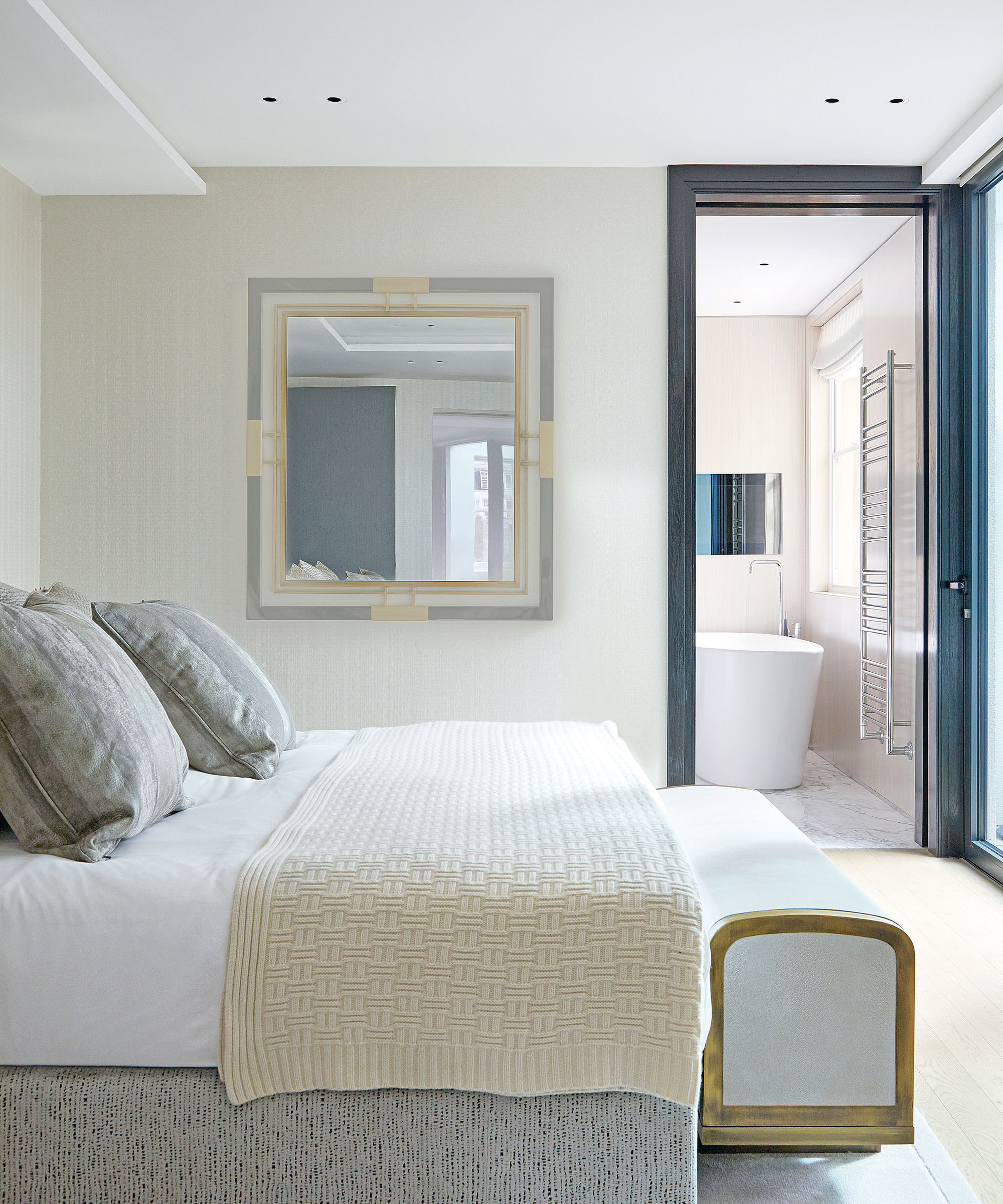
Some digital showers are now controllable via an app. 'This means you can use your phone or tablet from your bed – or elsewhere in the home – to turn on the shower and activate the warm-up function,' says Natalie. That means no more waiting around for the shower to get to the desired temperature, as the app will tell you when it's ready.
'The app also helps with energy and water saving, as it enables users to monitor their water and energy consumption and run their shower more efficiently.'
Digital showers – the cons
So far, so good, but what are the downsides of digital showers? Roca's Natalie Bird and Ripples senior designer Chris Payne explain the compromises involved.
1. More space and planning is required
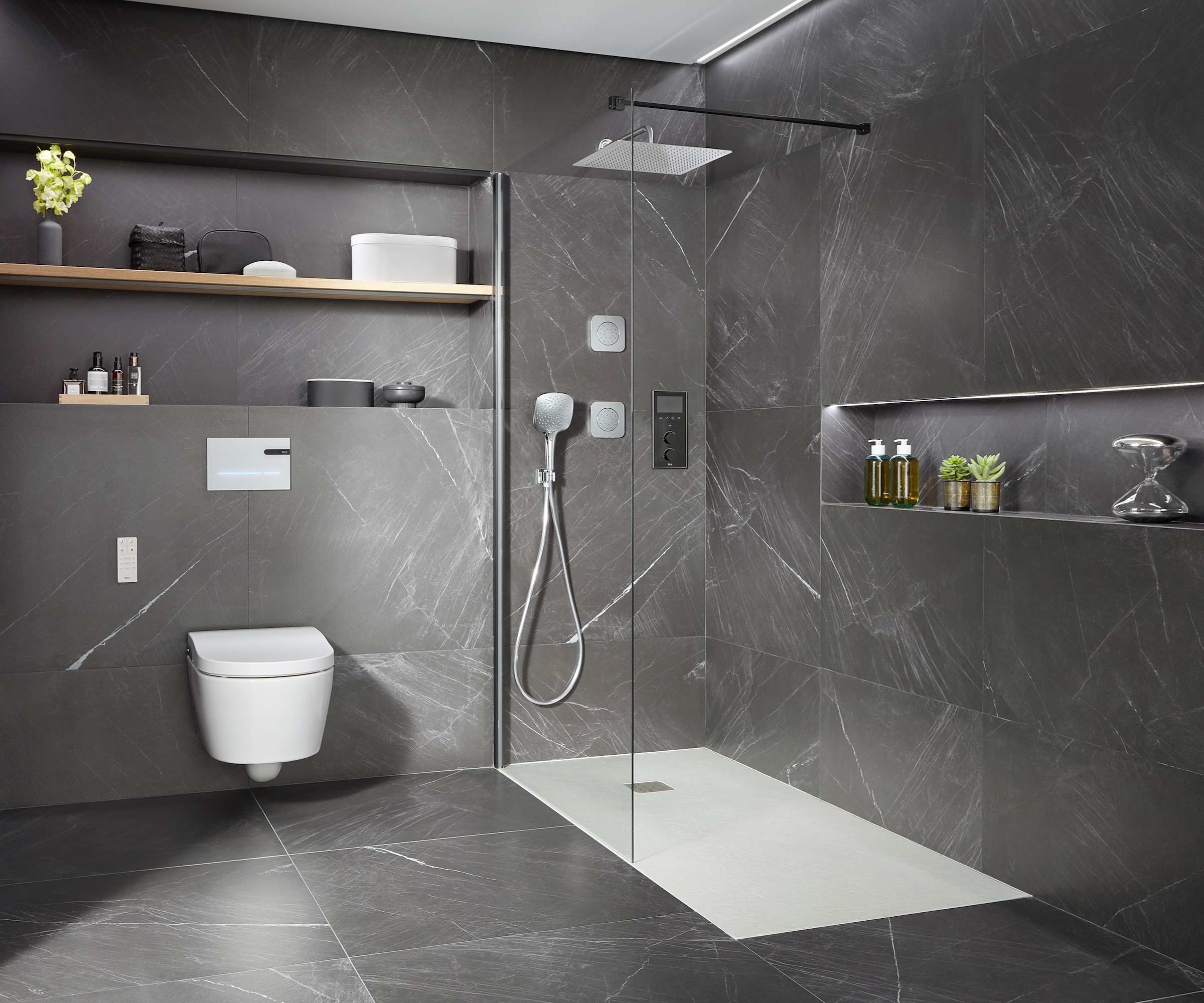
A little more thought will need to go into your bathroom design if you opt for a digital shower. 'As well as all the usual pipes, with a smart shower, you have to make room for the unit that remotely controls the temperature and flow of the shower,' Natalie Bird explains. 'The control unit isn’t huge but will need to be accommodated within a short distance of the shower, so it is accessible should repairs be needed.'
'As such, you’ll need to ensure there’s space in the loft above or within a stud wall. You’ll also need to factor in an access panel so that if something goes wrong, you won’t need to remove tiles to access it.'
2. Cost
There's no denying that choosing a smart shower over a non-digital model will up the cost of a bathroom remodel. 'Digital showers tend to be more expensive than standard models because the technology involved is more advanced than a simple shower,' says Natalie. 'Though, as there is an increasing number in the market, digital showers are available at a wide range of price points.'
'In addition, while they’re not complicated to install, your plumber may be unfamiliar with the technology. Again, though, as they’re becoming more popular, this situation has improved, and most manufacturers will offer technical support to installers.'
For comparison, you could pick up a regular thermostatic shower system for $250, whereas you'll pay at least double that for a digital shower with a control panel.
3. Not knowing who to call if things go wrong
'Digital showers may well be the future of bathrooms as the ability to control the function, temperature and pressure of your shower digitally is a very attractive possibility,' says Ripples senior designer Chris Payne. 'That being said, one of the key disadvantages may be that if a fault occurs, you call a plumber and they say “oh you need an electrician” and often vice versa.'
'We are still in the early stages of digital shower designs so I expect the technology to continue to improve and evolve over the coming years.'
4. Digital showers won't work in a power outage
If your area is prone to power outages, a digital shower could be ruled out of action unexpectedly. 'Digital showers require electricity to work, so they won’t operate in the event of a power outage,' warns Natalie. 'However, the same is true of all electric showers – and many modern gas furnaces need some electricity to work, so it's likely none of us can shower if the power goes off!'
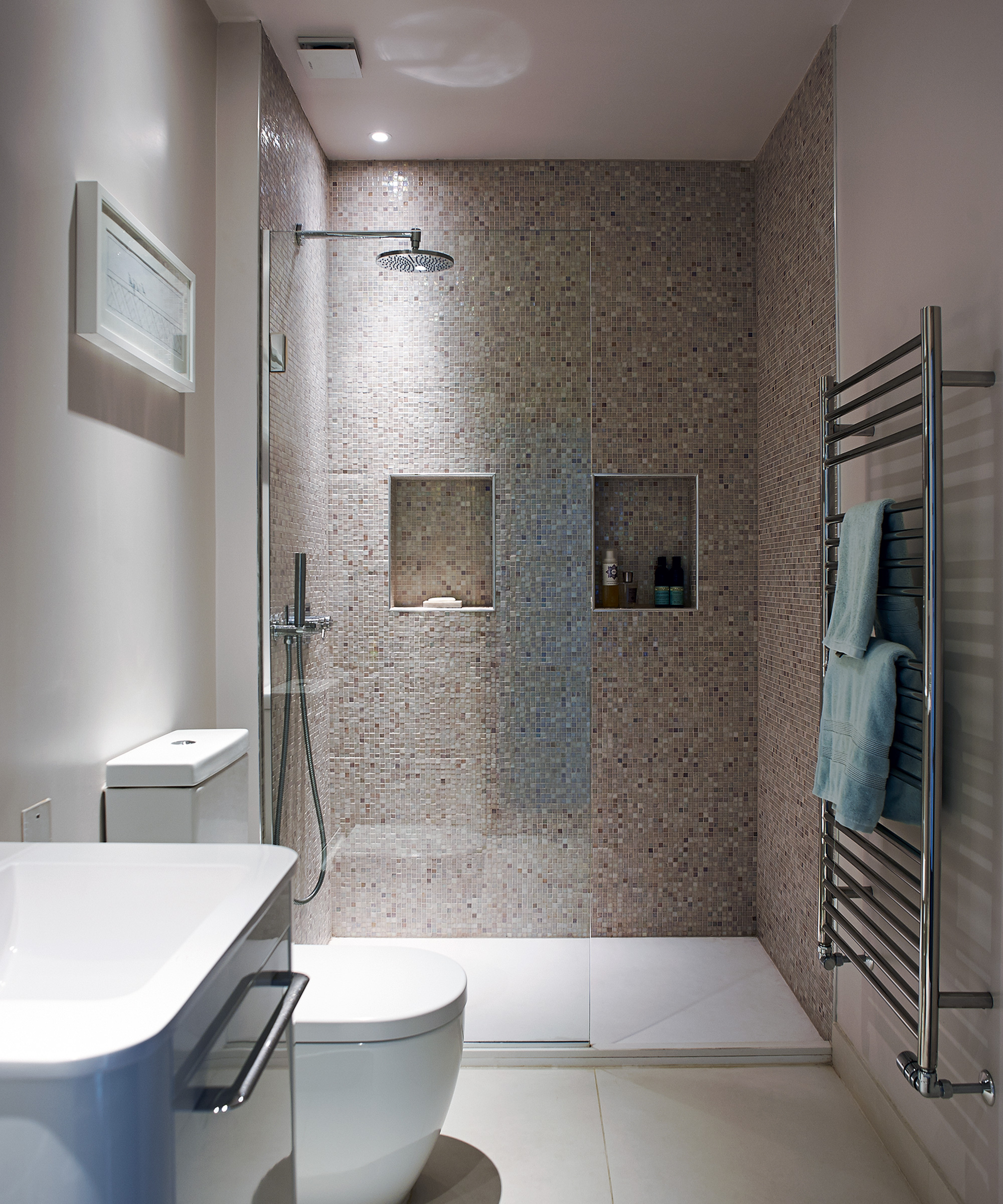
Should I buy a digital shower?
If you're looking for a luxury shower experience along the wellness bathroom theme we think digital showers are worth the extra outlay. In a busy household, there's a lot to be said for having your own shower settings, so you aren't continually having to tweak the controls, and the associated safety features are great for families.
Keep in mind, though, that you will need to check if the system is compatible with your water source and pressure, and that you may need a specialist to help with the installation given the mix of plumbing and electrical elements.
And as with all technology, digital showers are continually improving. The very latest can be controlled via an app on your phone, and even hooked up with Alexa or Siri so you can use your voice to turn them on and off. So research models carefully and make sure yours has exactly the technology you need.

Amy Cutmore is Editor-in-Chief, Audience, across Future's Homes portfolio. A homes and interiors journalist of 20 years standing, she has spent much of that time writing about technology, appliances and kitchens. While other people count how many countries they've visited, Amy tots up how many countries' washing machine factories she's toured (it's eight by the way, from South Korea to Slovenia). She can't leave the house without a decent pair of noise-cancelling headphones, and is always ready to explain an acronym – be it QLED, DAB or HDMI.